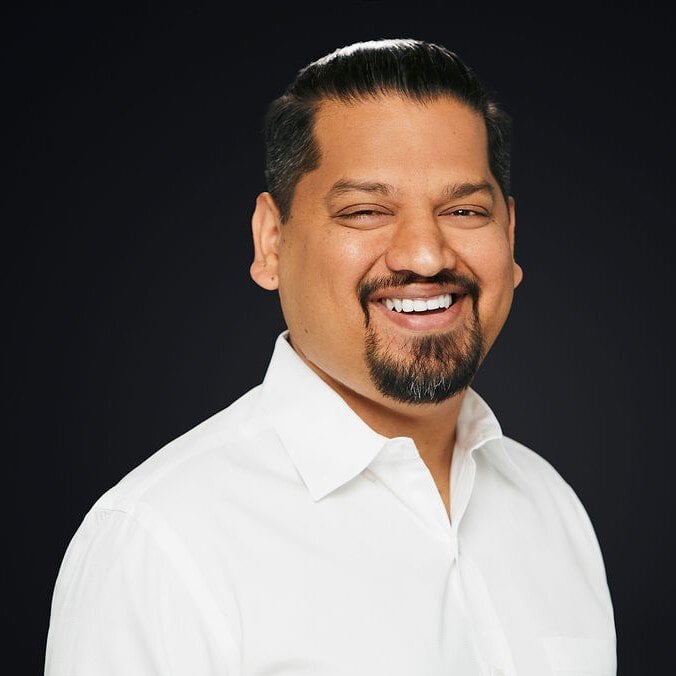The U.S. accounting profession is at a turning point. A growing talent shortage is making it harder for firms to find and retain qualified professionals, while client demands continue to rise. At the same time, thousands of skilled accountants in countries like India and the Philippines are earning U.S. CPA and EA credentials—motivated, qualified, and eager to contribute.
Yet, many U.S. firms remain hesitant to embrace these professionals, often viewing them as competitors rather than collaborators. This article challenges that perception and offers a fresh perspective: global accountants aren’t threats to the U.S. profession — they’re key allies in sustaining and strengthening it.
A Widening Gap in U.S. Accountant Supply
It’s already well established: the U.S. accounting profession is facing a severe and ongoing talent shortage. Fewer people are entering the pipeline, and firms of all sizes are struggling to keep up with growing client demand.
While many are working to address the issue, demand will continue to far outpace supply for years to come.
The Rise of Global Accountants
Outside the U.S., a very different trend is taking shape. In India and the Philippines—two countries with strong accounting education systems and high English fluency—thousands of professionals are actively pursuing U.S. CPA and EA credentials. These are not shortcuts or knockoffs; they’re the same licenses, earned through the same exams, held to the same ethical standards.
Many of these professionals come with years of relevant experience, often trained at Big Four firms or multinationals. Some hold multiple designations, such as CA (India) or CPA (Australia), and bring a global outlook to the table.
Their motivation is clear: they want to work with U.S. firms, learn global best practices, and build long-term careers. Their presence represents not a dilution of standards—but a powerful opportunity to reinforce them.
Resistance and Misconceptions
Despite this, many U.S. firms remain skeptical of working with global accountants. There’s a persistent narrative that international professionals “take jobs,” or that their work is subpar. Others worry that clients won’t accept international staff, or that offshore professionals won’t understand U.S. work culture.
These concerns are understandable—but not necessarily grounded in fact.
Data and real-world case studies show that firms that invest in integrating global accountants, experience:
- Higher margins
- Reduced burnout
- Improved client satisfaction
Many clients—especially in tech-forward sectors—are indifferent to where work gets done, as long as it’s done well.
Most resistance stems from unfamiliarity, not evidence. Once firms invest in onboarding and communication, global accountants often become some of their most reliable and committed team members.
Everyone Wins with Global Accountants: Real Examples from Industry Trailblazers
Across the profession, forward-thinking individuals and firms are proving the core message of this article: global accountants aren’t competitors—they’re collaborators who make the entire profession stronger.
These real-world examples from trailblazers prove that literally everyone in the CPA profession—from solo practitioners to PE-backed firms—stands to gain by working with global accountants.
Aspiring CPA Firm Owners
The next generation of firm owners is building differently from day one. Instead of waiting to afford a full U.S. team, they’re launching firms with global accountants embedded into their model—handling everything from tax prep to controllership work.
These founders use global talent not as a cost-cutting tool, but as a launchpad to deliver high-quality service while staying lean, agile, and focused on growth.
Solo Practitioners
The most forward-looking solo CPAs are using global talent to make the leap from being a one-person practice to building a real firm. By hiring global accountants and EAs, they’re no longer stuck doing everything themselves—they’re creating leverage, expanding capacity, and delivering more value to clients.
What starts as support during busy season often evolves into a full team that handles core service delivery, freeing the solo CPA to focus on growth, client relationships, and strategic work. Global talent becomes the foundation for building a firm—not just surviving as a solo.
Small Firms
Progressive small firms are using global accountants to expand capacity and offer more services year-round. Instead of relying on outsourcing agencies, they’re hiring global professionals directly — giving them better control, consistency, and integration.
This approach enables small firms to compete with larger players, take on more clients, and scale operations without stretching their U.S. teams too thin.
Midsize & Large Firms
Progressive mid-market firms are moving beyond traditional outsourcing models. They’re training offshore CPAs just like they would train local hires—bringing them into the firm’s processes, tools, and culture.
These firms are using global teams not just for back-office support, but for core client delivery—creating scalable operations that still feel personal.
This is helping them stay relevant in a PE-driven world. Leveraging global talent gives them the margins, efficiency, and access to talent they need to remain independent and compete with PE-backed firms. And for those looking to sell, these capabilities are leading to higher valuations by demonstrating scale, profitability, and operational maturity.
Private Equity Buyers
Nearly all PE-backed firms are leveraging global accountants to improve margins, reduce hiring bottlenecks, and create operational playbooks that scale. These buyers see global teams as strategic assets, not placeholders.
In fact, instead of relying on third-party outsourcing vendors, they’re setting up their own international operations or working with partners who enable direct ownership and full control.
For PE firms, using global accountants isn’t just about saving money — it’s about unlocking growth and driving valuation.
What This Means for the Profession
The takeaway from these trailblazers is clear: global accountants don’t replace local professionals—they enhance them.
They bring much-needed capacity, reduce burnout, and allow U.S.-based CPAs to focus on higher-value advisory and client-facing work. They enable firms to scale without compromising quality or overextending local teams.
For forward-thinking professionals, this isn’t a cost-saving shortcut — it’s a strategic advantage that strengthens the firm, supports growth, and delivers better outcomes for clients.
Conclusion: A Global Future for Accounting
The accounting profession doesn’t need to shrink to protect itself. It needs to grow—and that growth won’t come solely from within U.S. borders.
Global accountants are not a threat. They are credentialed, capable professionals who share the same values of ethics, accuracy, and client service. They are already solving problems for firms across the country, whether quietly in the background or actively leading engagements.
Everyone—no matter where they are in the CPA profession—stands to gain from global accountants. Whether you're just starting out, running a solo practice, scaling a growing firm, or managing a PE-backed platform, global collaboration can strengthen your model.
It’s time to retire the idea that global accountants are “others.” They are part of the same profession. And the sooner we treat them that way, the stronger, more inclusive, and more sustainable the future of accounting will be.
A global accountant is not your competitor. They are your collaborator.
.png?width=150&height=63&name=TWRlogo-regmark_blueblack%20(1).png)
.png)










Do you have questions about this article? Email us and let us know > info@woodard.com
Comments: